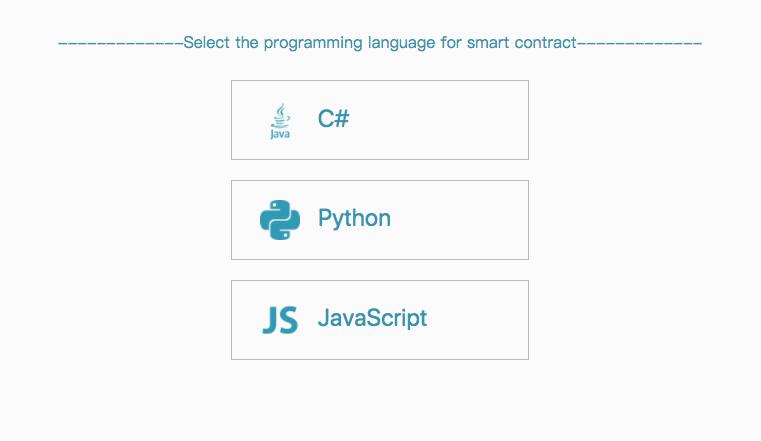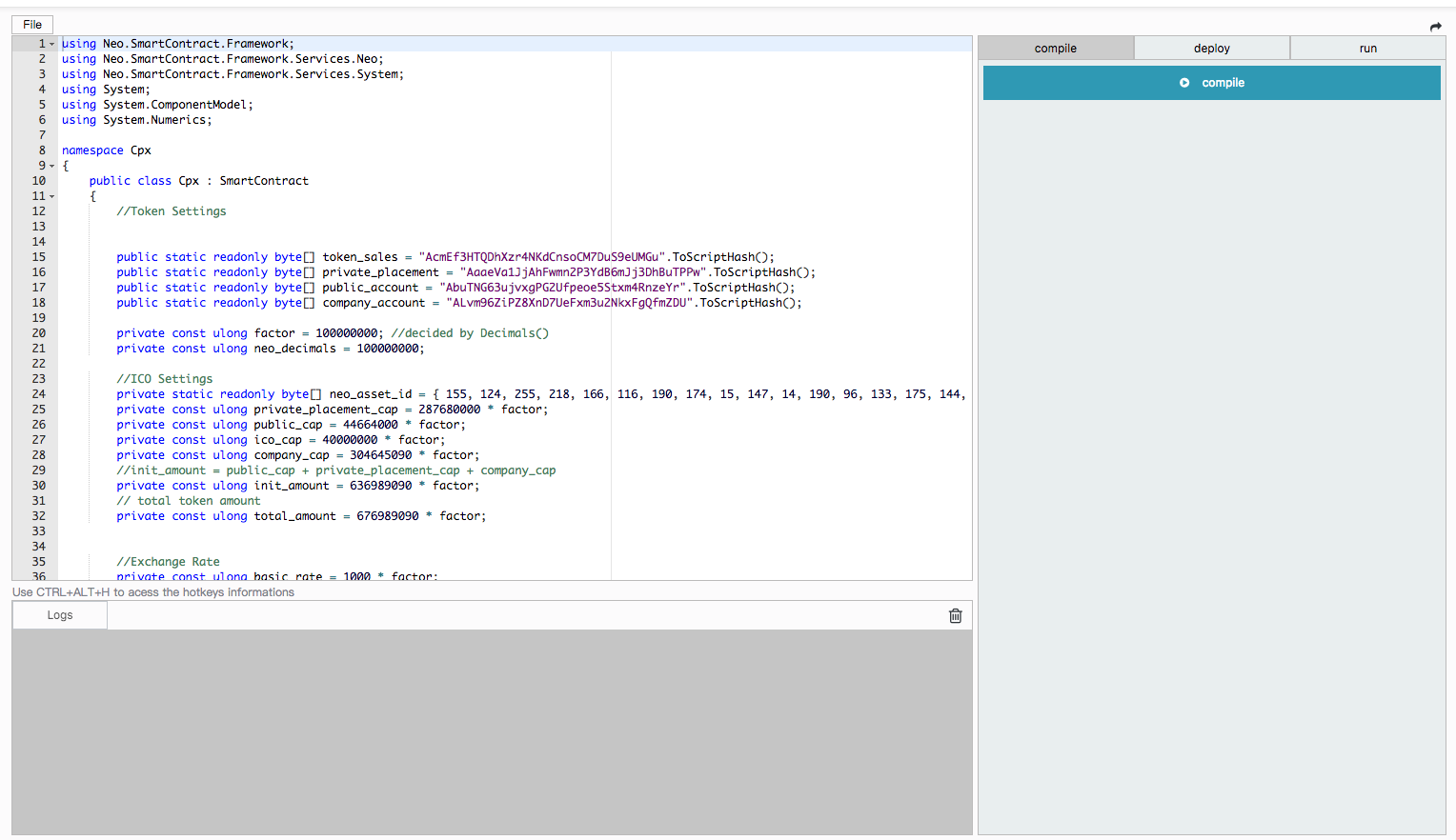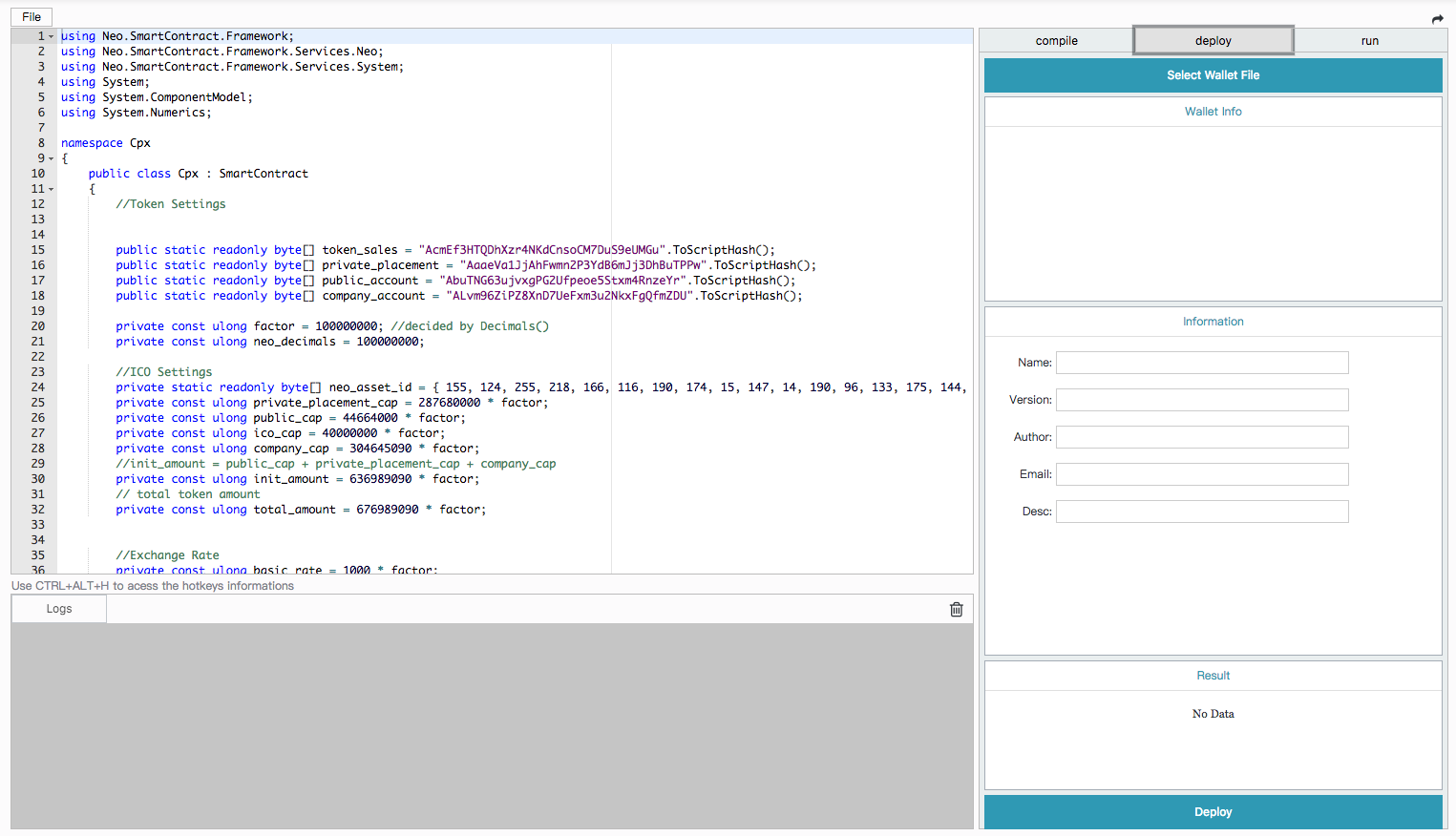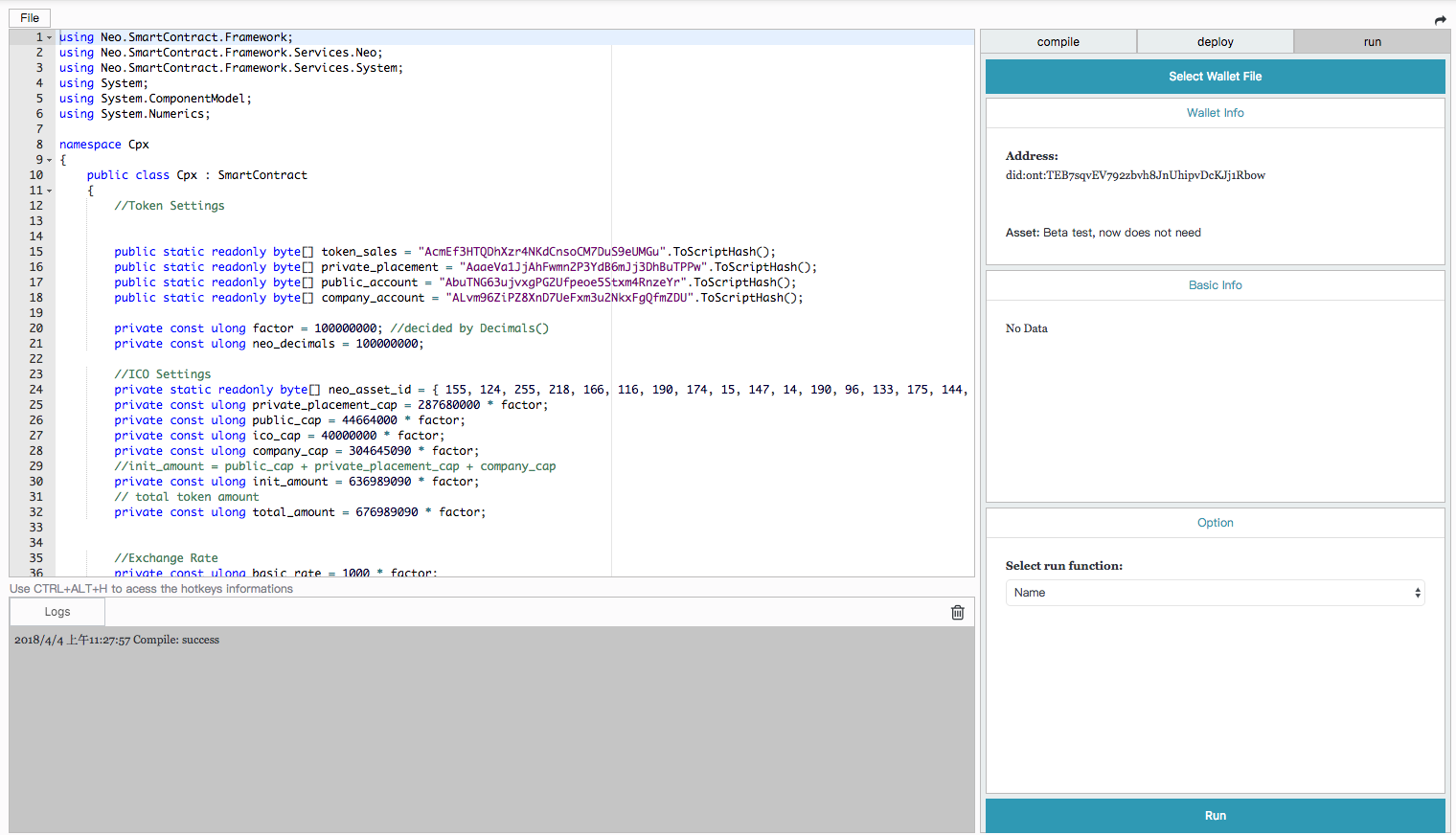中文 | English
Version V0.7.0
A smart contract is a set of commitments that are defined in digital form, including the agreement on how contract participants shall fulfill these commitments. Blockchain technology gives us a decentralized, non-tamperable, highly reliable system in which smart contracts are extremely useful. Smart contracts are one of the most important characteristics of blockchain technology and the reason why blockchains can be called a “disruptive” technology. It is increasing the efficiency of our social structure day by day.
Ontology smart contract have certainty, high-performance, and expandable features, it includes two modules: Interactive Service and Virtual Machine. Interactive Service provides interaction between virtual machine and blockchain ledger. Virtual Machine provides smart contract execution environment.
Interactive Service includes native service, NeoVM service, and WasmVM service. Native service provides special smart contract implementation in the underlying blockchain, which can be quickly and conveniently used. NeoVM service provides the API of NeoVM to communicate externally, it can enhance the invoke function of the smart contract. WasmVM service provides the API of WasmVM to communicate with the external virtual machine.
Virtual Machine includes NeoVM and WasmVM. NeoVM is a lightweight virtual machine, which has proven to perform well on public chains. WasmVM is a high-performance and universal virtual machine.
Ontology smart contract also support invoke in different contracts and virtual machines. Developers can easily use Ontology smart contracts to build projects.
The languages currently supported are:
C#, VB.Net, F#
Java, Kotlin
Python
C, C++
The languages that we plan to support include:
Rust
Golang
JavaScript
we have built the Smartx to help you with all these things.
SmartX is a one-stop IDE that can be used to compile, deploy, and invoke smart contracts. It provides a range of smart contract templates and a powerful online editor. Individuals can use SmartX templates or commission community developers to customize contracts. In the future, smart contract developers will be able to trade smart contracts they have written or collaborate with multiple people to develop smart contracts, using their own expertise to profit.
Ontology smart contracts support multiple contract types such as native smart contracts, NeoVM smart contracts, Wasm smart contracts, and more. Currently, SmartX supports NeoVM-based C# and Python, and will support Wasm online compilation functions and additional mainstream programming languages in the future, including Java, Rust, Go, JavaScript, and more.
In the future SmartX will work like GitHub to be a distributed software project code hosting platform. This will support multiple people to participate in and share complex contracts, and at the time same, implement a set of economic incentives and integrate fair governance policies to reflect the contributions of each participant. This will foster smart contract writing, smart contract transactions, collaboration, community building, and an altogether valuable smart contract development ecosystem.
We now support smart contracts that run in NeoVM and WasmVM.
- For NeoVM, you can useSmartx to write, compile, deploy, and invoke smart contracts.
- For WASMVM, Please go to >> Wasm Smart Contract.
First you should create a project and choose the language to write your smart contract.
Then you can see the main editor page.
The right side is the operation panel.
The middle area is the editor and the logs output box.
You can enjoy coding your smart contracts now. We also provide some useful contract templates for you to start writing easily.
You can check more specific examples here.
After you have written your smart contract, you can click the Compile button on the right side to compile your code.
If your code is correct, your smart contract will be compiled to the ABI and AVM file, and display on the right side.
Next, you can deploy the smart contract to the blockchain. This step costs some fee, you can use the testnet account for test. Then click the Deploy button to deploy the contract.
Besides IDE, you can use ONT SDK to deploy the smart contract. Please check the SDKs for more detailed information.
Last, you can run the method of your contract. This step costs a fee too. You can select the method and input the params to invoke. The result will display on the right side.
Besides IDE, you can use ONT SDK to invoke a smart contract. Please check the SDKs for more detailed information.



